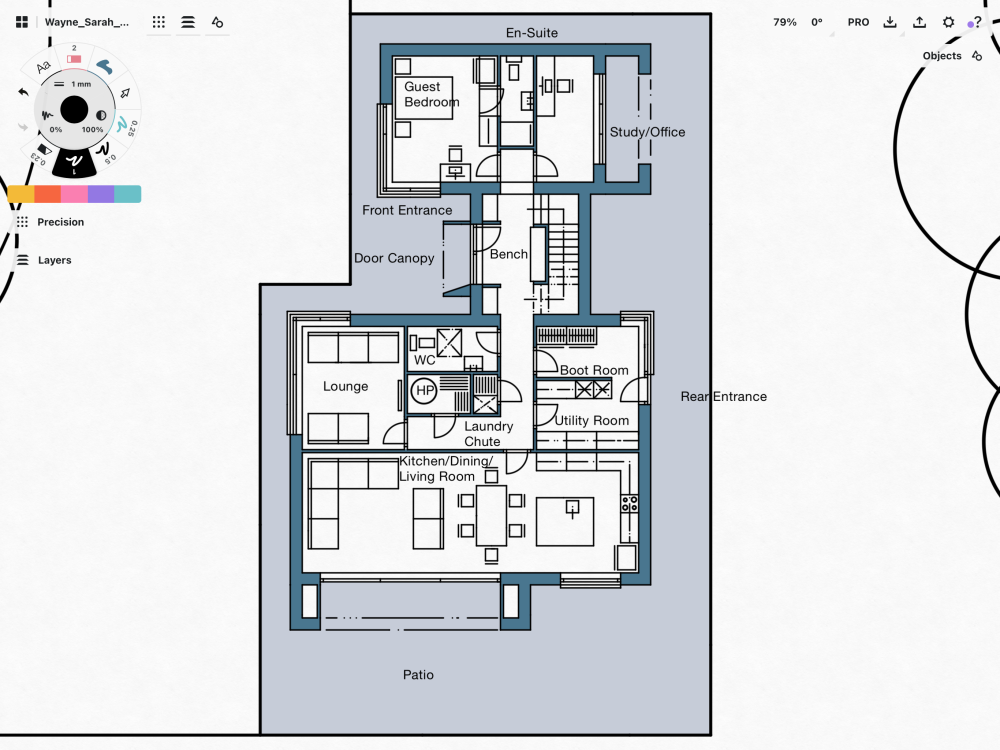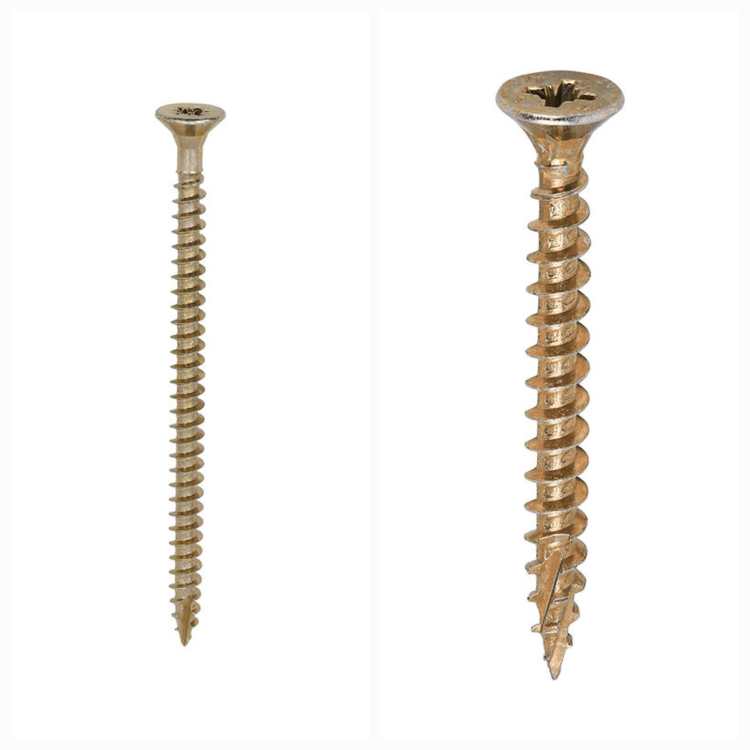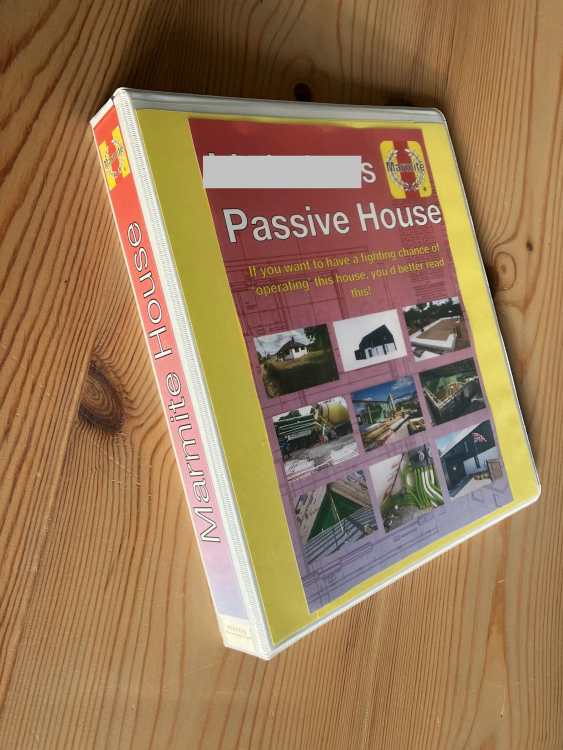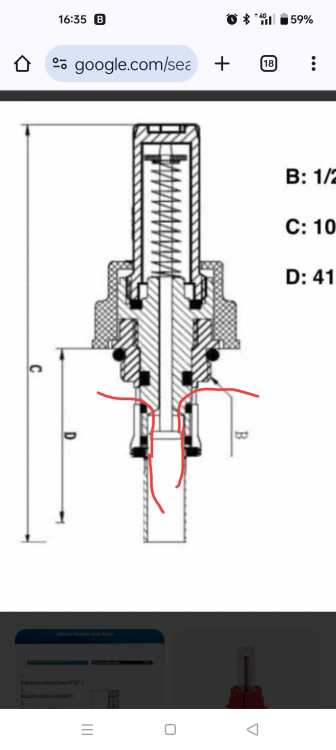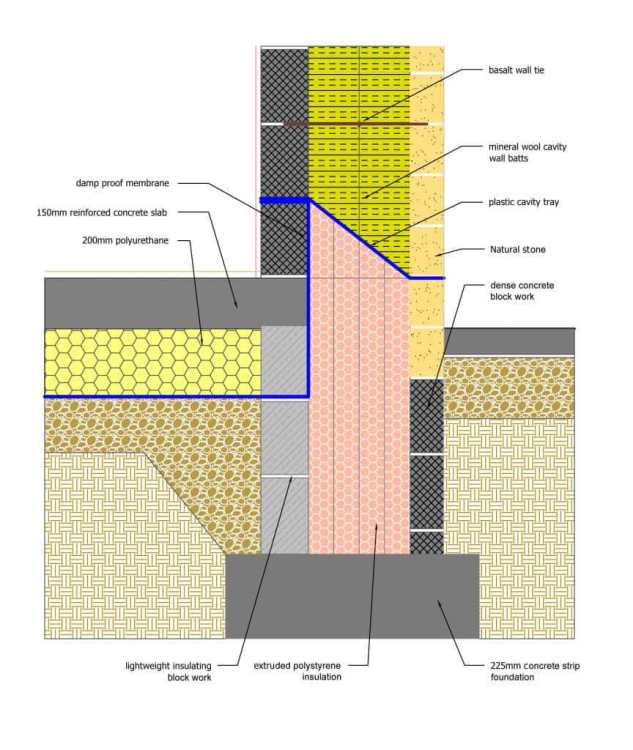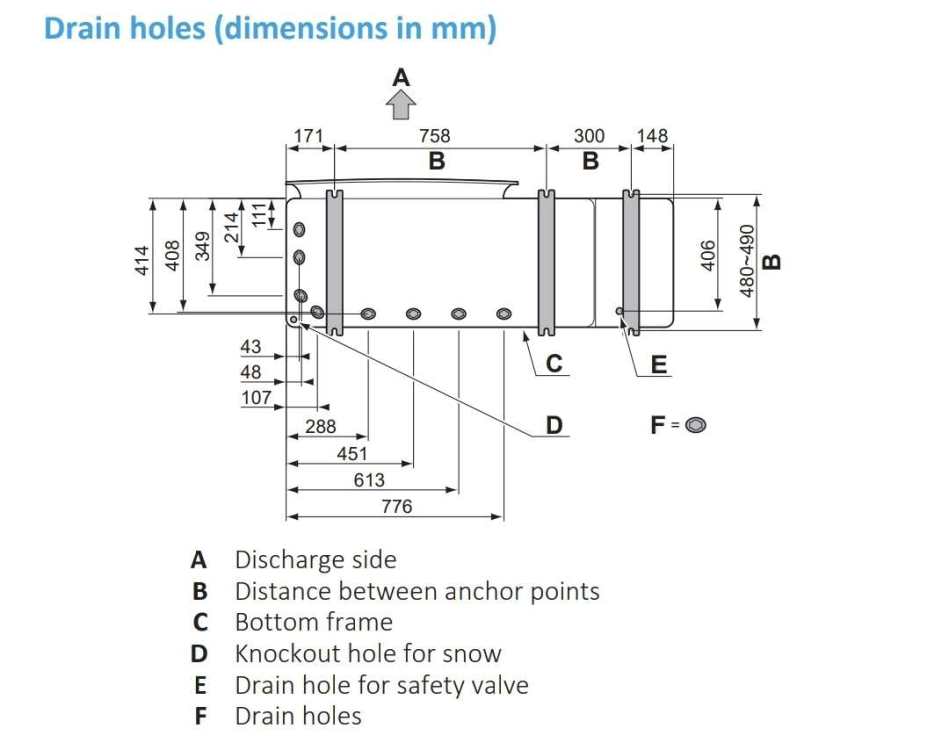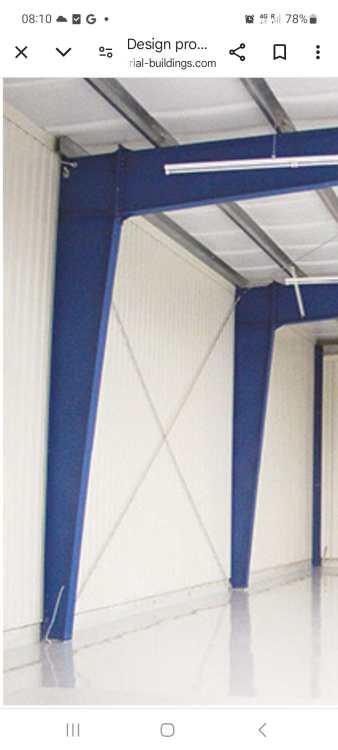Leaderboard
Popular Content
Showing content with the highest reputation on 11/14/24 in all areas
-
It’s been a long 12 yrs 🤣 I use to frequent ebuild ( I think that’s what it was called ) even before my build commenced . When that disappeared I did worry ! . But found the resurrection in buildhub . I knew I couldn’t do the build on my own . A non standard design with no help . I assumed ( incorrectly ) bco would be on my back with a self build and ‘help’ me … the opposite occurred . Everything in life I do on my own ( no rude jokes ) ; I can learn what I need to get the job done ( this does not make me an expert ! ) . Buildhub has been invaluable - I built a house via the internet . I think that’s (expletive deleted)ing amazing tbh ! So for all the noobs with no experience etc I do have advice ! You are either cash rich and time poor or the opposite. Cash rich you can pay others to accelerate your build . Time rich you do it yourself . As I am self employed and didn’t have the cash ( no (expletive deleted)er is going to give me a self build mortgage ) then time is my friend . Remove stress points . A self build mortgage will put you under massive pressure - to release the next payment . Don’t rent temporarily when you can buy . To partially fund our build we sold our house and bought a shitty flat . This took any rental issues off the table and equity appreciation allowed the crap flat to add to the finance of the build once sold . We then lived on site - a cash saving for sure at the expense of ‘normality ‘ . By not being tied to a loan nor tied to time I (expletive deleted)ed about for a decade and got it done . Stress existed - but it was rare . This is the way ! I still have a hundred bits to fanny around with . Remove pressure , remove stress . Appreciate everyone’s in a different situation . But don’t let the build destroy you . It’s a bitch and you are the master ( bit of bdsm there for my followers ) . Ask for help on the forum always . (expletive deleted) things up - so what ! . Waste 1000’s on a balls up - so what . Haven’t got a clue ? - so what . Plan a strategy!12 points
-
8 points
-
Once again it's been much longer than it should have been since I last posted with my last entry being July, wow where has that time gone. Back then we were building the walls for phase 1 and installing the window and door lintels. Back then it was warm, unlike now and building could be done in shorts and T shirts Once these walls were built then it was time to think about a roof, even though it is going to be a temporary one for now as the whole house will have the final roof at the same time. This part of the conversion is designed to look like an extension as it did on the original. So, the South wall is higher and this 'hooks' on to it. We also have on-site building inspectors checking out their new home Then we had to start getting the rafters in situ, allowing for the overhang on the sides and end. The roof 'ladder' was built from the wood that was used to line the windows whilst building. These did take a long time as the roof is 4 degrees so slightly sloped so each block of both cavities times 2 had to be cut to the exact size required The weather wasn't always kind, but we did have some visitors to check out what was happening. Eventually, it was finished with the temp roof on. Windows covered for now as this will become our storage shed for a while During this time, we also had to move the stables. From this, already part demolished, not sure where the original pictures have gone. To this to this, luckily moved by a local farmer. Not sure when the horses will have them back though. Next is to start on the East side of the main part of the build. Originally our SE said that we had to have 2.4m deep underpinning foundations. But, our BCO had on on-side meeting with the SE as he felt this was over the top. We dug some example trenches to show what the soil was. He agreed with the help of the dog that it really is sand in this area. We do have some clay further on where we can have stepped foundations But he has agreed that we can have 750mm where it's sand so we are doing phase 2 which will be the office, master, bathrooms and 2 bedrooms. It will be the plant, another bedroom, family room and pantry which need deeper foundations. We have started digging out for the 2nd phase so will post my next update in due course. Thanks for looking and good luck with your builds2 points
-
Hi All, I'm really glad I found this site, it's a treasure trove of useful knowledge. I've been lurking here for about a year, without a plot or active project I've not felt I've had much to contribute but now I have a time sensitive question about finding plots so it's time to say hello. I'm currently based in London, stuck in a flat affected by Grenfell related cladding issues. Thankfully that appears to be coming to an end for us soon (recent fire report showed limited changes need to be made) and once they are done the property should be more easily mortgageable and thus easier to sell. I'm relatively financially constrained but I have lots of free time so I'm looking for a largely DIY self build in an area commutable to London. I have a technical / IT background so find the theoretical aspects of building relatively easy but I don't have much practical experience but that doesn't put me off. What is getting frustrating is finding a plot, but I feel we are all in the same boat or have been here. If I'm not careful I could write an essay here so I think I'll stop now. Now I've introduced myself I hope to be able to contribute where I can, though probably limited until I find a plot.2 points
-
Well done mate, we might take the pi$$ now and again but we hold our hands up to you and what you have achieved.2 points
-
No. You don't . Initially avoid architects (why - they will try to sell you their design services - which isn't planning) . You need to instruct a Planner to work for you. Ours (sharp as a tac) charged £70 cash for a visit and 30 minute discussion. Best money I ever spent. Ever.2 points
-
Two hours with a local planning consultant will tell you if your dreaming or not. I would start there. pointless paying an architect for something that will never happen.2 points
-
2 points
-
The roof rafters are being installed with the openings for the roof windows. LABC visits for the second time, there have been a few photos sent as well, they inspect the roof, anchors and fastenings etc. The internal walls are built up around the steel goal posts. Not as many hours on site this week were one man down, its half term here. I started a Gabion wall, filling it with rubbish stone and facing the front with nice stone from around the plot, it just separates off the garden from the vehicle parking area, holding back about 400mm depth of soil. You can see on the photo the remaining post of the old wooden fence which was behind a skip now removed. Total man days of labour for week 8 is 20 days.2 points
-
I had mine taken out by octopus a year ago. I was told that the gas network would be in touch to remove the pipe after the meter was gone, but if they are going to do it, they're taking their sweet time (NGN). I had a letter through the post a couple of months ago asking for details of "any new gas meter", but haven't heard anything more.1 point
-
I spotted it in this video as I'm about to have a Daikin installed myself: You're right that there are extra brackets to sit it in between the feet and the heatpump so it would be a pain if you don't have a flex connection that would accommodate the change. I'd be tempted by the gutter idea, quick and easy and it might just be enough. I really don't understand the design process of the drainage holes, I have a suitable drain nearby for a condensate pipe but there just doesn't appear to be a way to do this with the Daikins, unlike all other manufacturers, even my cheap A2A unit.1 point
-
I don't have any pictures, sorry. It was my old house. A thicker screw with thicker thread will 'bite' Better in the thin material if the door, just be careful not to over tighten. The screw is there to clamp the plinth until the glue goes off. With all glues, most of the strength is in the way it's fixed. Two surfaces rested against each other will fail. If they're clamped, the bond is stronger.1 point
-
1 point
-
Good. Now - How to choose a Planner.... Network : with the emphasis on work : it takes time and effort. Go onto the LPA site : read lots of applications of the sort of house (build) you want Note who submits that type of application. Read the narrative. Does the Planner make the application easy to understand - has a good deal of effort gone in to it? Does one planner waffle ? Forget her /him Try and find out who knows who in the LPA, and how (Network) Micropolitics matters Look at how well the application is illustrated: it may or may not matter - but if it does, then why wouldn't you make the effort? Does the Planner listen - really listen - to you? If not, then she / he won't listen to others either Does the Planner name-drop about Officials in the LPA ? How? Why? Go to a Planning Committe or two or three. Get to know the people involved Does the LPA outsource the Decision Notice Report? Talk to Estate Agents. Listen. We paid £2000 ish. 6 weeks from start to submission. The guy next to my site applied at the same time (25 meters away) mishandled the LPA - stropped, complained, rubbed folk up the wrong way. And didn't get through. Politics matters.1 point
-
Thanks Nick, on both counts1 point
-
1 point
-
Norrsken but you have to pay for them before install. isn’t this a bit like buying sausages and not wanting to pay for them in case they don’t taste good. you can probably pay for installation separately, but windows will need payment in full before release from the factory. to get a good install YOU need to know how it’s done, do your research find out the right and wrong ways, then question how they intend to do it, question them again until you know exactly what they intend doing and you are happy with it. there are hundreds of posts on here with people being unhappy about something, but they did zero research and then got a surprise when the install wasn’t done as expected.1 point
-
There's been quite a bit on here about 3 phase smart meters being a pain to get hold of and (iirc) being difficult to re connection to the suppliers. Given a new build will have 3 phase to the meter box, you can have a single phase meter connected for the supply and then at a later date trade up to a 3 phase if needed.1 point
-
Trying to second guess planners is a non starter in my opinion, apply for what YOU want and be prepared for compromise. Yes dealing with planners can be frustrating and frankly it’s a game (to them). I ended up with four applications but Won on appeal for my original application whilst I started building number four which the planners granted.1 point
-
1 point
-
1 point
-
Why not talk to a planning consultant, does your architect have the experience in difficult cases, or do they just draw pretty pictures. I used an architect for pretty pictures and a planning consultant for the application, a lot of consultants come from a local government background. ours certainly did and secured an on site meeting to discuss what we wanted and what the planning officer didn’t like, after an hour we had reached a bit of common ground, re drew a few aspects and it went through, first time. we had been told it would be highly unlikely to achieve planning on our plot.1 point
-
Concrete lintel, but go up a size they are about 150 deep.1 point
-
1 point
-
More blasphemy from you @saveasteading!!! I would very much go the other direction. It's not a "I spent less cash that you" competition. Nobody buys a Rolls Royce because it's cheap to run. But because it comfortably, quiet, and (maybe not these days) well built and reliable. Passivhaus is super cheap to run but it's the comfort, the ability to retain heat, the lack of drafts, the fresh air, the quietness that make it worth the extra effort. Also if done properly you can ditch complex central heating and it's actually quite economical. Back to the build, strip foundations perform excellently if done right. I would go to the local builders merchants and attempt to only build my house from stock items. The only exception being blown cellulose I think.1 point
-
1 point
-
I have to say that would be my concern as well. Out of the 8 surrounding properties only 1 is two storey, all the others are 1.5 or single storey. Planning is always a game of tactics, you have to push your opponent as far as you think they will go. However I've never found the approach of "ask for far more than you want in the first place" to be very successful, it usually ends up costing more in time and money and can create issues if refusals close off useful directions of design. As an aside we have full height, nearly full width glazing in the second bedroom overlooking the lane. Great views, but that's in as well as out and I've noticed guests tend to leave the curtains closed most of the time.......1 point
-
Yes we are. Good quality/price. The other thing is that the team at Uniwin are great. Very pleasant to deal with and patient!1 point
-
If you have more cars to charge, the chargers will throttle back so that they don't cause too much voltage drop. I think car chargers have to be 'smart' already.1 point
-
We have a fully electric house and could get close to blowing our 80 amp main fuse if everything was on at once, of course it’s not - not normally but on the current Octopus smart tariff I want everything on from 23:30 at night. We use a Willis heater for the underfloor heating (with the ability to use 2 if it’s really cold). If both of those came on at 23:30, plus the Sunamp and the house battery started charging plus the electric UFH and towel rails plus the dishwasher plus the washing machine plus the car started charging then the fuse would go. On the Octopus tariff I don’t have a huge amount of control over when the car starts charging so because of that I’ve restricted it’s charge rate to 4kW (I’m probably starting to use the wrong units now but hopefully you’ll understand). I know not to have everything come on at 23:30 but the next owner won’t (unless they read the Haynes style owner manual I’m writing). In the winter months I probably couldn’t charge a second EV over night, I should have gone 3 phase but I didn’t understand all of this before I made that decision.1 point
-
I was very surprised to see how little extra it costs. That's assuming you don't have to pay for a transformer. But single phase seems to be plenty for a typical house so why pay more?1 point
-
How many EV’s are you likely to have on the drive in 10/20 years time? 3 or 4? You may want something faster than 7.5kW charger. I’d go 3 phase if it’s not prohibitively expensive.1 point
-
A kettle and a toaster? Have to turn the ashp off during breakfast.1 point
-
My DNO fits 3phase by default, other DNOs may well do the same.1 point
-
@flanagaj Are you sure the LPA’s main issue may be converting a bungalow to a two storey dwelling? Surely adopting a more traditional frontage is likely to be more favourable? LPA’s may be willing to accept changes if they are minor (usually those that could be dealt with via a NMA application). Otherwise, you’d have to go back through another Planning process. Assume you’ve already sought Pre-application advice?1 point
-
Welcome to normality. Dr Buttercup diagnoses LackOfControlitis: common among self builders. Symptoms: sleeplessness, monomania, distraction, restlessness , anomie, periodic raised heart rate, irritable brain syndrome, BP 140 over 90 most days, over eating. Cure: long distance running, sky diving, caving, rock climbing, toothache, base jumping, romantic weekend with partner, bog snorkeling, supper at @SteamyTea's place, a day in a deckchair watching @Pocster at work, bicycle trip to Sicily, shout down a volcano. All available on the NHS1 point
-
There is a thing called 'diversity'. This is what governs how much power each circuit is likely to take, depending on the type of load and devices fitted i.e. a cooker has a diversity of 1, only thing on that circuit. Bedrooms will be different as the largest loads will be vacuum cleaner, and that is only run for a few minutes. So Google diversity and you will find formula. Or ask @ProDave, though he is working under scotch regs.1 point
-
They can be and are, for big structures. The standard ones are "hot rolled" through formers from a yellow hot balk of steel. But beams can be welded from flat plates which can be whatever thickness and width is required, in which case they don’t even have to be parallel. Your picture shows the possibility of increasing the web height from a hot rolled section. Castellated beams are cut to zigzag halves and moved relatively sideways and welded together. The weld is visible in your picture. The circle option is a prettier effect, with some offcut waste resulting. Very strong and allows services through. Also note plate girders on victorian bridges, made from flat steel plates riveted together.1 point
-
We have UFH through out, all acting as a single zone. I flip about how I run the system, weather compensation and batch charging, but have over the last week been running a slightly elevated flow temp over night (around 32), then using floor as a storage heater (batch charge). But have less UFH pipes in the bedroom so a lower output (or you could reduce flow through those loops). We keep the bedroom doors closed throughout the day, so they don't get as warm, as the rest of the house. So most of yesterday the house had been at just above 21, bedrooms just below 20. By 10pm the house has cooled to just below 21, heating generally off until after midnight. It then starts up again and charges the floor. Heating the floor is a slow affair, so by 0730 the house is back to 21. Just use a simple 0.1 hysterisis thermostat to control. Thing with UFH it's very different to radiators, the change in room temp or house temp takes an age to change. But all done with flow temps are quite lot lower than radiators.1 point
-
By spacing the UFH pipework to suit the losses for each room. Why a room by room heat loss calculations are done.1 point
-
Many thanks for the add. We are just starting out on the self build process. Having read some of the threads it’s going to be an interesting journey. We purchased a 500 year old cottage last year in a little farming hamlet. It came with a 0.75 acre of land at the edge of the hamlet with its own private access and has a double garage on it already. Not in an AONB or conservation area. The land has a lane which we own with some services already laid but more needs to be done. The site is triangular in shape and whatever we build will not be visible from any of the other properties or roads. There is also a private wood with no public access along one side then another side is a farmers field which has access elsewhere and the final side has another lane that we own behind a tall stone wall. We have a planning advisor coming out next week and we will see where that leaves us. philb1 point
-
Sorry, no. The web (the central vertical bit) is there to keep the flanges apart. Then it has to resist deflection but that is secondary. Increasing the distance the flanges are apart increases the lever for the flanges, and making them thicker gives strength....but it's a class for another time. There is permanent deflection from the load above the beam, and that doesn't concern you ( it bends and stays put, and the door gear can be fixed kevel). Dynamic deflection from the doors moving is your concern. (Loading and unloading). There is no such thing as zero deflection. Thus it may well be ok, but probably needs clarification.1 point
-
1 point
-
If you’re going down the rabbit hole of research, this is where I found the most easy to digest information by just going through the back catalogue of the videos in these channels. Completely eye opening. https://youtube.com/@heatgeek?feature=shared https://youtube.com/@urbanplumbers?feature=shared1 point
-
At my Dad's, before he passed, the doors etc were the original from 1960. Hardboard skin with paper / cardboard inside. Hardly anything had been changed or updated. We needed to convert the bathroom one to a sliding door. Firstly so he could manoeuvre his walker through the hall, also in case he fell against the inward opening door. That plus fit a big handle which he would quite likely hang on. I Starrett cut big holes, then glued and screwed timber rounds from the other side: Put it this way, I could hang on it:1 point
-
No the span will have already dictated the the thickness of your steel We hit and miss welded plates on three sides at our previous build Six years on No cracks or movement1 point
-
The difference between a wood burner and bacon is that you can choose to eat a bacon sandwich and it only affects your own health whereas a wood burner pollutes the air for everyone. You can protect yourself from the dangers of bacon, but it needs action at a government level to protect us from pollution.1 point
-
That's a 3 phase HV supply so you've got a 3 phase transformer....you can see the 3 isolation switches on the pole below the transformer. Shouldn't be crazy expensive to give you a 3 phase supply if you wanted, but.. With the electrification of the country there's going to be lots of distribution upgrades required and if the transformers been there a while it may not be up to supplying 4 houses with EVs, HPs etc. . If that's the case your DNO may upgrade it for free and give you a 100A supply. When we asked to double our PV export our DNO found our transformer wasn't adequate for a modern supply and replaced it free of charge together with refurbishment of all the poles and cabling around us. If you initiate an enquiry and request a supply upgrade/ PV export you may find the same principle applies, particularly if the transformer is old and rated for electric demand from decades ago. If any of your neighbours are planning increasing demand then share that with your DNO1 point
-
It depends on where the cold feed is teed into the system, if its just before the pump (suction) then the pump discharge head is the "height"+the pump head, in your case, 2M+3M=5M. If its after the pump on the discharge side then the pump suction head is the height-the pump head, 2M-3M=-1M, pump running with a negative head of 1M. The rad in my converted attic runs with a very slight negative pressure, if you open the rad vent with the pump running then no water comes out but as soon as you stop the pump, water will start bleeding out, its run that way for ~ 30 years with no problems and heats up fully, as stated above, I require a pump head of 3.6M to fully heat all my rads.1 point
-
Does the ditch flow to anywhere? If it simply holds water then it is acting as a very long soakaway plus there is evaporation . If it does flow, then where? Maybe flooding somewhere. You could dig a parallel ditch as a new retention system plus soakaway. Or dig a pond. Ponds hold back storm water, have large areas for petvolation and evaliration, plus plants will drink it.1 point








